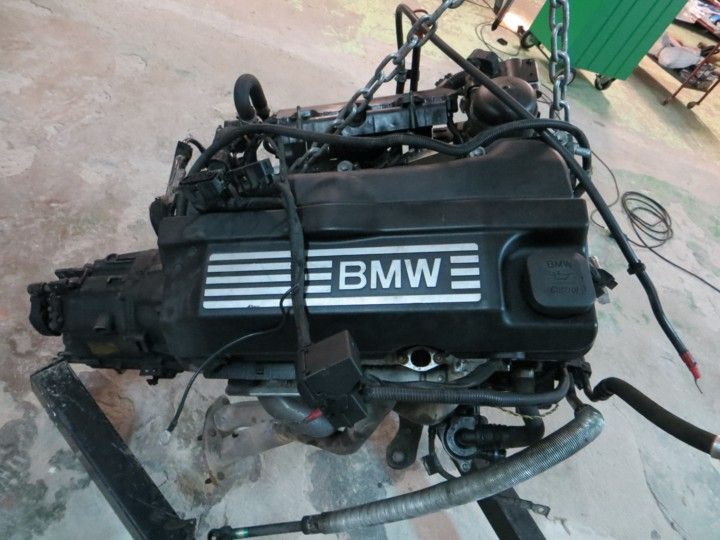The BMW 318ti: A Blend of Design, Convenience, and Efficiency
The BMW 318ti: A Blend of Design, Convenience, and Efficiency
Blog Article
Vital Considerations for Selecting the Ideal Engine for Your Needs
In the realm of picking the suitable engine to satisfy your needs, a number of important elements need meticulous consideration to guarantee ideal performance and efficiency. From the nuanced equilibrium between power and efficiency to the often-overlooked aspects of upkeep and service needs, each facet plays a crucial duty in establishing the most appropriate engine for your particular demands.
Power and Performance
When evaluating engines for ideal performance, it is crucial to focus on both power outcome and performance. Efficiency refers to how well the engine transforms fuel into useful energy. By thoroughly reviewing both power and effectiveness, you can pick an engine that supplies optimal performance and satisfies your needs successfully.
Gas Performance and Economy
In the world of engine selection, the consideration of fuel effectiveness and economic climate holds vital importance. Gas effectiveness describes the engine's capacity to transform gas right into power with minimal waste, straight affecting operating expenses and ecological sustainability. bmw 318ti. When choosing an engine, examining its gas economic climate is crucial to determine lasting savings and environmental impact. Engines with greater gas effectiveness not just lower fuel expenses but likewise reduce carbon emissions, adding to a greener procedure.

Compatibility and Application
Thinking about the gas performance and economy of an engine, the following critical element to address is its compatibility and application within details operational contexts. Compatibility refers to just how well the engine integrates with the total system or equipment it powers. It entails variables such as physical measurements, mounting choices, electric user interfaces, and control systems. Guaranteeing compatibility is vital to protect against concerns such as overheating, vibrations, or power imbalances (bmw 318ti).
Furthermore, the application of the engine is similarly essential. Various engines are created for specific purposes, whether it be industrial equipment, marine vessels, vehicles, or power generators. Understanding the desired application enables the selection of an engine that can supply the required power outcome, torque, and functional characteristics. A high-revving engine made for performance cars and trucks would not be ideal for durable building and construction devices that calls for high torque at reduced click to read speeds.
Upkeep and Service Requirements
Upkeep and service needs play an important function in making certain the longevity and optimum efficiency of an engine. Normal upkeep is important to protect against malfunctions, prolong the life-span of the engine, and maintain its effectiveness. When picking an engine, it is essential to consider the supplier's recommended upkeep timetable and the availability of solution centers or qualified service technicians.
Variables such as the frequency of oil changes, filter replacements, more helpful hints and general examinations can considerably impact the engine's efficiency. Some engines might need more regular maintenance based upon their layout and usage, while others might have longer periods in between upkeep checks. It is crucial to comply with these solution demands to prevent expensive repair work and unexpected downtime.

Cost and Budget Considerations
Budget restraints commonly play a considerable function in the decision-making process when picking an look at this web-site engine for a specific application. When considering the expense and budget implications of selecting an engine, it is vital to assess not just the initial acquisition rate but likewise the long-lasting costs connected with maintenance, gas intake, and prospective upgrades or fixings. It is vital to strike a balance in between the upfront price of the engine and its general lifecycle prices to ensure that the picked engine remains monetarily lasting throughout its operational life-span.
Elements such as fuel performance, reliability, and longevity can directly affect the complete cost of possession of an engine. While a much more costly engine might have higher ahead of time costs, it might potentially result in lower maintenance and fuel expenses over time, hence supplying far better worth in the future. Additionally, considering the availability and price of spare components, in addition to the ease of upkeep and solution, can help avoid unanticipated monetary pressure in the future. By very carefully evaluating these cost and budget plan factors to consider, you can make an enlightened decision that straightens with your functional requirements and financial constraints.
Verdict

Gas performance refers to the engine's ability to convert gas into power with marginal waste, directly influencing operating costs and ecological sustainability.Elements influencing gas performance include engine layout, combustion performance, and overall performance optimization. In addition, picking the proper gas kind and quality as suggested by the engine supplier can additionally improve efficiency and extend engine life-span.
Engines with good utility functions and conveniently available components can reduce maintenance expenses and minimize the time the engine is out of operation - bmw 318ti. It is critical to strike a balance between the ahead of time price of the engine and its total lifecycle prices to ensure that the chosen engine stays financially sustainable throughout its operational life expectancy
Report this page